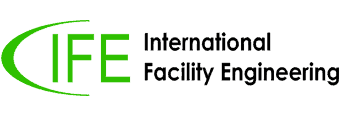Human Resource
A human resources (HR) officer develops, advises on and implements policies relating to the effective use of personnel within an organization.
HR/personnel work comprises a number of different but related policies,all of which are required by organizations that employ people, whatever the size or type of business. These cover areas such as working practices, recruitment, pay, conditions of employment and diversity.
HR staff needs to ensure that the organization employs the right balance of staff in terms of skills and experience, and that training and development opportunities are available to employees to enhance their performance in order to achieve the organization’s objectives.
Typical work activities
As a human resources (HR) officer you must have a clear understanding of your organization’s business objectives and be able to devise and implement policies which select, develop and retain the right staff needed to meet these objectives. The exact nature of the work activities varies according to the organization, but is likely to include:
- Working closely with departments, increasingly in a consultancy role, assisting line managers to understand and implement policies and procedures.
- Promoting equality and diversity as part of the culture of the organization.
- Liaising with a wide range of organizations involved in areas such as race relations, disability, gender, age, religion and health and safety.
- Recruiting staff – this includes developing job descriptions, preparing advertisements, checking application forms, short listing, interviewing and selecting candidates.
- Developing policies on issues such as working conditions, performance management, equal opportunities, disciplinary procedures and absence management.
- Advising on pay and other remuneration issues, including promotion and benefits.
- Undertaking regular salary reviews.
- Negotiating with staff and their representatives on issues relating to pay and conditions.
- Administering payroll and maintaining records relating to staff.
- Interpreting and advising on employment legislation.
- Listening to grievances and implementing disciplinary procedures.
- Developing HR planning strategies with line managers, which consider immediate and long-term staff requirements in terms of numbers and skill levels.
- Planning and sometimes delivering training, including inductions for new staff.
Analyzing training needs in conjunction with departmental managers.
Contract Administrator
Directs activities concerned with contracts for purchase or sale of equipment, materials, products, or services: Examines performance requirements, delivery schedules, and estimates of costs of material, equipment, and production to ensure completeness and accuracy. Prepares bids, process specifications, test and progress reports, and other exhibits that may be required.
Reviews bids from other firms for conformity to contract requirements and determines acceptable bids. Negotiates contract with customer or bidder. Requests or approves amendments to or extensions of contracts. Advises planning and production departments of contractual rights and obligations.
May compile data for preparing estimates. May act as liaison between company and subcontractors. Notify the vendors when invoices are not received; and verify that the bills concur with the purchase orders.
Finance/Accounting
Financial Analyst
Reconciling and forecasting internal accounts is a large part of an analyst’s career. They spend an immense amount of time compiling data, ensuring accuracy, analyzing information, and creating reports. They monitor all documents and report any trends to management.
Financial Officer
Immense creativity and independence is necessary for a such a career because they are held accountable for organizing and directing their company’s overall financial policies. Insurance, tax, treasury, accounting, budgeting and many other aspects are included in this grouping. An in-depth education of accounting practices will be needed for these professionals.
Accountant
By analyzing revenues,costs,financial liabilities and assets,accountants are able to calculate future cash flows fairly accurately. Financial reports such as balance sheets or profit/loss statements must be maintained and reported to administrators. The majority of an accountant’s day is spent completing or analyzing paperwork, but communication among departments is also necessary.
Accounting Manager
Accounting professionals must often calculate, input and verify data on a regular basis. These managers and supervisors oversee all of these basic functions in addition to maintaining all financial records. These positions may require a great deal of time spent researching or reviewing the work of others.
Document Control
Perform duties relating to an established records management program including maintenance of data in applicable information systems. Assist in coordination of records program in assigned areas.
Working Procedure and/or responsibility assigned:
- Input, review and verify all information entered into electronic or database management system to ensure completeness and correctness. Identify necessary actions to correct any incorrect data before archiving via hardcopy and/or an electronic document management system.
- As needed, verify entries already submitted are correct and complete and take necessary action to correct any incorrect data already archived.
- Locate and retrieve information from various sources and provide that information to requestor in appropriate format.
- Convert electronic document formats into the appropriate Westinghouse format to enable permanent long-term storage and retrieval according to procedure.
- Use basic databases, spreadsheets and/or log files for indexing and tracking of documents and maintain data and technical manuals from external sources.
- Frequently reviews completeness or accuracy of another’s work.
- Perform work of equal or lower skill level as required.
- Proactively identify problems,discrepancies and process improvement opportunities as needed.
